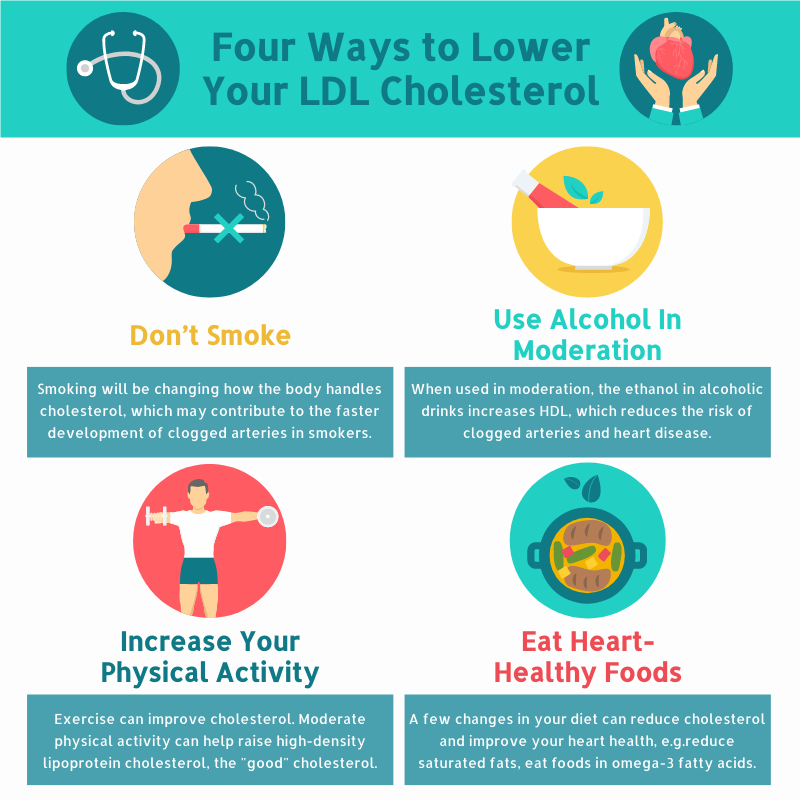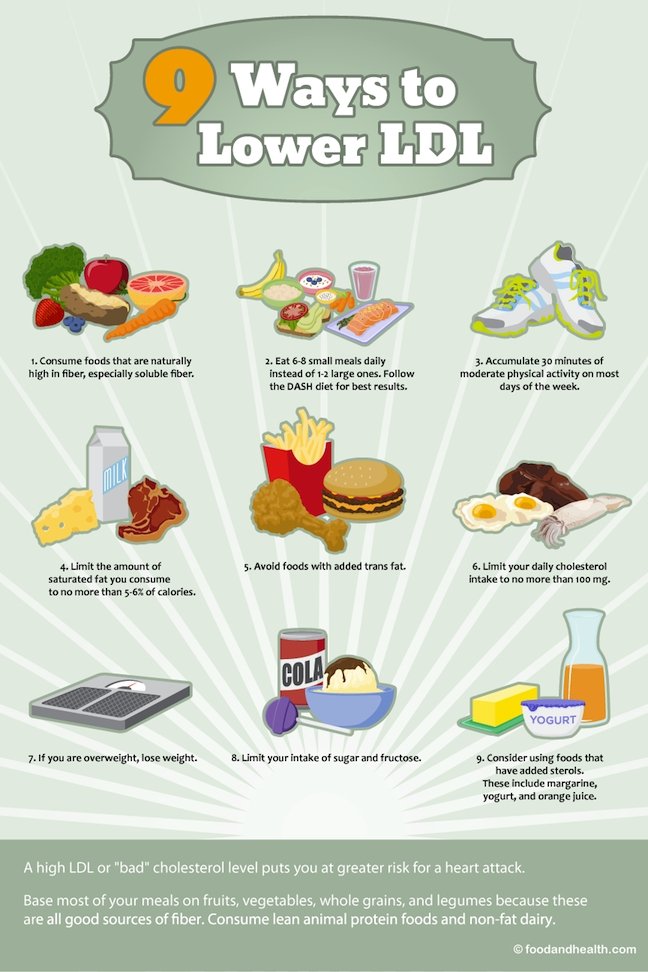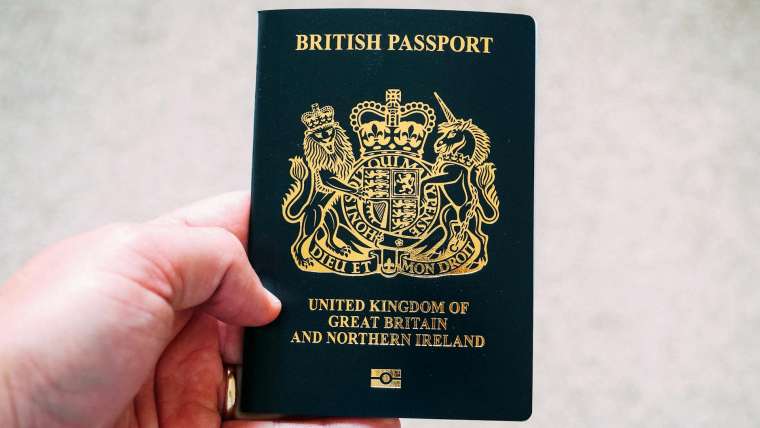Uncover the surprising diet changes that can lower high LDL cholesterol levels naturally and improve your heart health today.
Table of Contents
- Introduction to Cholesterol and Health
- Dangers of High LDL Cholesterol
- The Role of Diet in Managing Cholesterol
- Magnificent Magnesium
- Awesome Omega-3 Fats
- Finding Fiber
- Vinegar for Vigor
- Putting It All Together: A Sample Meal Plan
- Lifestyle Choices Beyond Diet
- Recap: Smart Eating for Lower LDL Cholesterol
- Frequently Asked Questions (FAQs)
Introduction to Cholesterol and Health
Cholesterol is a waxy substance that is found in our blood and is crucial for building healthy cells in our bodies. However, having too much cholesterol, especially LDL cholesterol, can be harmful to our health. Let’s delve into what cholesterol is, the difference between good (HDL) and bad (LDL) cholesterol, and why it’s important to keep LDL levels low.
What is Cholesterol?
Cholesterol is like a worker in our body who helps in building the cells and making some vital hormones. But when there is too much of this worker roaming in our blood, it can start causing trouble. It’s essential to keep an eye on the amount of cholesterol we have, as high levels can lead to health problems.
Understanding LDL Cholesterol
LDL cholesterol, often called the “bad” cholesterol, can become a problem if its levels rise. When there’s too much LDL cholesterol in our blood, it can stick to the walls of our arteries, making them narrow and stiff. This can eventually block the flow of blood to our heart or brain and lead to serious health issues.
Dangers of High LDL Cholesterol
Having high cholesterol, especially high levels of LDL cholesterol, can be dangerous for your health. LDL cholesterol is often referred to as the “bad” cholesterol because too much of it can lead to serious health problems. One of the biggest risks associated with high LDL cholesterol is heart disease. When there is too much LDL cholesterol in your blood, it can build up in the walls of your arteries, leading to the formation of plaque. This plaque can narrow your arteries and restrict blood flow, increasing your risk of heart attacks and strokes. It’s essential to keep your LDL cholesterol levels in check to protect your heart and overall health.
The Role of Diet in Managing Cholesterol
In order to keep our bodies healthy, it’s important to understand how the food we eat can affect our cholesterol levels. LDL cholesterol, also known as the “bad” cholesterol, can increase the risk of heart disease if levels get too high. By making smart dietary choices, we can help manage and lower high LDL cholesterol levels.

Image courtesy of www.pinterest.com via Google Images
How Foods Affect Cholesterol
Some foods, like fried and processed snacks, can raise our LDL cholesterol levels. On the other hand, foods rich in dietary fiber, such as oats, fruits, and vegetables, can actually help lower LDL cholesterol. Omega-3 fatty acids found in fish like salmon and nuts can also be beneficial for our heart health and cholesterol levels.
Magnificent Magnesium
In our quest to lower high LDL cholesterol levels, we cannot overlook the magnificent benefits of magnesium. This essential mineral plays a crucial role in various bodily functions and has been linked to potentially helping in controlling LDL cholesterol.
Sources of Magnesium
Where can you find this fantastic mineral? Well, magnesium can be found in a variety of foods that you might already have in your kitchen. Foods such as leafy green vegetables like spinach and kale, nuts and seeds like almonds and pumpkin seeds, whole grains, and even dark chocolate are all rich sources of magnesium. By incorporating these magnesium-rich foods into your diet, you could be taking a step towards managing your LDL cholesterol levels better.
Awesome Omega-3 Fats
Omega-3 fats are like superheroes for your body, especially when it comes to keeping your heart healthy and your cholesterol levels in check. These special healthy fats are essential for our bodies to function properly, and they can have amazing benefits for our overall health!

Image courtesy of online.visual-paradigm.com via Google Images
Omega-3 and Heart Health
One of the most remarkable things about omega-3 fats is how they can boost your heart health by reducing the risk of heart disease. They work their magic by lowering triglycerides in your blood, reducing inflammation, and even helping to regulate your blood pressure. Plus, omega-3 fats have been shown to boost good HDL cholesterol levels while decreasing levels of bad LDL cholesterol, helping to keep your heart pumping strong!
So, where can you find these fantastic omega-3 fats? Well, some great sources include fatty fish like salmon, mackerel, and sardines. If you’re not a fan of fish, don’t worry – you can also get omega-3s from plant-based sources like flaxseeds, chia seeds, and walnuts. Incorporating these foods into your diet can help ensure you’re getting enough omega-3 fats to keep your heart happy!
Finding Fiber
In our quest to manage and lower high LDL cholesterol levels, one key player in our diet is dietary fiber. But what exactly is dietary fiber and why is it important?
Fiber’s Function
Dietary fiber is the part of plant-based foods that our bodies can’t digest. It plays a crucial role in our digestive system by helping to regulate bowel movements and promoting a healthy gut. But when it comes to managing cholesterol, fiber works its magic in a different way.
When we consume foods high in dietary fiber, like fruits, vegetables, whole grains, and legumes, the fiber binds to cholesterol in the intestines and helps remove it from the body before it can be absorbed into the bloodstream. This process ultimately leads to lower LDL cholesterol levels, reducing the risk of heart disease and other health issues.
Some excellent sources of dietary fiber include:
- Apples
- Broccoli
- Oats
- Beans
- Almonds
By incorporating these fiber-rich foods into our diet, we can actively work towards lowering and managing our LDL cholesterol levels in a delicious and nutritious way.
Vinegar for Vigor
Apple cider vinegar benefits have gained popularity for their potential health benefits, including their role in managing cholesterol levels. Let’s explore how this common kitchen ingredient can contribute to your overall health.

Image courtesy of nutritioneducationstore.com · In stock via Google Images
What Does Apple Cider Vinegar Do?
Apple cider vinegar is believed to have cholesterol-lowering properties. Some studies suggest that it can help reduce LDL cholesterol levels, which is crucial for maintaining a healthy heart. The acetic acid in apple cider vinegar may play a role in breaking down cholesterol and preventing it from building up in the arteries.
Putting It All Together: A Sample Meal Plan
Now that we’ve discussed the importance of managing high LDL cholesterol through diet changes, let’s put together a sample meal plan that incorporates foods known to lower cholesterol levels.
Breakfast, Lunch, and Dinner Ideas
Starting your day with a healthy breakfast is crucial for maintaining good cholesterol levels. For breakfast, you could have a bowl of oatmeal topped with some berries and a sprinkle of chia seeds. Oatmeal is rich in dietary fiber, which can help reduce LDL cholesterol levels. Pair it with a glass of freshly squeezed orange juice for some added vitamin C, which is also beneficial for heart health.
For lunch, consider a salad loaded with leafy greens like spinach and kale, topped with grilled salmon. Salmon is a great source of omega-3 fatty acids, which can help lower LDL cholesterol. You can also add some nuts like walnuts or almonds for an extra boost of healthy fats.
When it comes to dinner, make a stir-fry with tofu and a variety of colorful vegetables like bell peppers, broccoli, and carrots. Tofu is a good source of plant-based protein and dietary fiber, while the vegetables provide essential nutrients and antioxidants. Cook it in a small amount of olive oil, which is a heart-healthy fat that can help improve cholesterol levels.
Throughout the day, be sure to stay hydrated by drinking plenty of water and herbal teas. And for snacks, opt for fresh fruits, plain yogurt, or a handful of mixed nuts to keep your energy levels up without compromising your cholesterol goals.
Lifestyle Choices Beyond Diet
While focusing on a healthy diet is crucial for managing high cholesterol levels, there are additional lifestyle choices that can further support your efforts in lowering LDL cholesterol. These lifestyle changes can work hand in hand with dietary modifications to promote overall heart health.
| Food | LDL-Lowering Effect |
|---|---|
| Fatty Fish (Salmon, Mackerel, Sardines) | Rich in omega-3 fatty acids that lower LDL cholesterol |
| Oats and Whole Grains | Contain soluble fiber that reduces LDL levels |
| Nuts (Almonds, walnuts) | Healthy fats and fiber lower LDL cholesterol |
| Fruits and Vegetables | High in antioxidants and fiber to lower LDL |
| Olive Oil | Rich in monounsaturated fats that improve LDL levels |
| Green Tea | Contains compounds that help lower LDL cholesterol |

Image courtesy of www.nhlbi.nih.gov via Google Images
Exercise Regularly
Physical activity plays a vital role in maintaining cardiovascular health. Engaging in regular exercise, such as brisk walking, swimming, or cycling, can help improve your cholesterol profile by increasing HDL (‘good’) cholesterol levels and lowering LDL (‘bad’) cholesterol levels.
Manage Stress
Chronic stress can negatively impact your cholesterol levels and overall heart health. Finding ways to manage stress, such as practicing mindfulness, deep breathing exercises, or yoga, can help reduce the harmful effects of stress on your body and potentially lower LDL cholesterol levels.
Get Adequate Sleep
Poor sleep habits have been linked to higher levels of LDL cholesterol. Aim to get 7-9 hours of quality sleep each night to support your body’s natural processes, including cholesterol regulation. Establishing a regular sleep schedule and creating a restful bedtime routine can promote better sleep and potentially lower LDL levels.
Recap: Smart Eating for Lower LDL Cholesterol
In our journey to control LDL cholesterol and maintain good health, we’ve learned about essential dietary choices that can make a big difference. Let’s quickly review the key points we’ve covered so far.
What is Cholesterol?
Cholesterol is a substance found in our blood that’s necessary for our bodies but can become harmful in excessive amounts. Maintaining a balance is crucial for overall health.
Understanding LDL Cholesterol
LDL cholesterol, often referred to as the ‘bad’ cholesterol, can lead to health issues if levels become too high. Keeping LDL levels in check is vital for a healthy heart.
The Role of Diet in Managing Cholesterol
We’ve discussed how making wise choices in our diet can play a significant role in lowering high LDL cholesterol levels. Certain foods can help reduce LDL and support overall heart health.
Magnificent Magnesium
Magnesium is a powerful mineral that can aid in controlling LDL cholesterol. Foods rich in magnesium, like leafy greens and nuts, can be a great addition to your diet.
Awesome Omega-3 Fats
Omega-3 fatty acids are beneficial for heart health and can help lower LDL cholesterol levels. Including foods like salmon, chia seeds, and walnuts can be a tasty way to boost your omega-3 intake.
Finding Fiber
Dietary fiber is essential for managing LDL cholesterol. Foods like oats, fruits, and vegetables are great sources of fiber and can help keep cholesterol levels in check.
Vinegar for Vigor
Apple cider vinegar has been linked to potential health benefits, including support in managing cholesterol levels. Adding a splash of apple cider vinegar to your diet may be worth considering.
By incorporating these smart eating choices into our daily routine, we can take proactive steps towards lowering LDL cholesterol and promoting overall heart health. Remember, small changes in your diet can lead to significant improvements in your well-being.
Frequently Asked Questions (FAQs)
Can certain foods completely fix high LDL cholesterol?
While certain foods can certainly help lower high LDL cholesterol levels, it’s essential to remember that a balanced diet is key. No single food can magically fix high LDL cholesterol on its own. A combination of healthy dietary choices, regular exercise, and lifestyle changes are crucial to effectively manage and reduce LDL levels.
How long does it take to lower LDL cholesterol with diet?
The time it takes to lower LDL cholesterol with diet can vary depending on various factors such as your current cholesterol levels, overall health, genetics, and how strictly you adhere to your cholesterol-lowering diet plan. Typically, making dietary changes geared towards lowering LDL cholesterol may start showing positive effects within a few weeks to a few months. Consistency is key, so stick to your healthy eating habits for long-lasting benefits.
Are there any easy swaps to help with high LDL cholesterol?
Yes, there are simple food swaps you can make to help lower high LDL cholesterol levels. Instead of using butter for cooking, try using heart-healthy oils like olive oil. Swap out processed snacks for fresh fruits or vegetables. Choose whole grains over refined grains, and opt for lean proteins like fish and poultry instead of red meat. Incorporating these easy swaps into your daily diet can make a significant impact on your LDL cholesterol levels over time.





